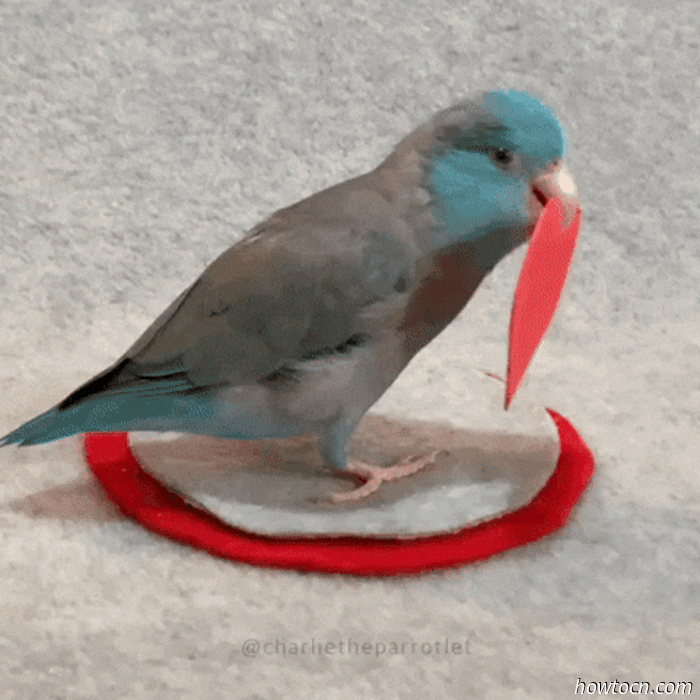
Mandarin Monday is a recurring series designed to enhance your Chinese skills by highlighting enjoyable and useful phrases and characters.
In light of the rising popularity of Xiaohongshu (Red) and the influx of #TikTokRefugees, we published a post featuring some essential phrases to kick off your journey. Now, we will explore some internet slang. If you’ve begun using Red, you might have seen various number or letter combinations in captions or comments and found yourself curious about their meanings.
Over time, Chinese internet users have devised a fun and efficient way to communicate online through letter abbreviations and number codes that reflect slang terms. Thus, whether you're browsing Red or chatting with friends on WeChat, grasping these slang expressions will keep you aligned with the latest online trends.
**Number-Based Slang**
In Chinese, numbers are frequently utilized as slang due to their phonetic resemblances to specific words. For instance, you may have noticed that many meal deals on Valentine's Day were priced at RMB 520 or RMB 1,314, and there’s a reason behind that!
It’s worth mentioning that the number one (yī) is sometimes pronounced as "yāo" to avoid confusion with similar-sounding digits, especially in phone numbers or codes. Understanding this will clarify the meanings of several of these slang numbers.
- **520 wǔ èr líng (我爱你 – wǒ ài nǐ)** – "I love you" The number 5 (wǔ) resembles "我" (wǒ), and 20 (èr líng) corresponds to "爱你" (ài nǐ). This expression is commonly seen in romantic messages and on May 20 (520 Day), which is China’s unofficial Valentine’s Day.
- **521 wǔ èr yī (我愿意 – wǒ yuànyì)** – "I am willing" Often used as a reply to 520.
- **1314 yī sān yī sì (一生一世 – yīshēng yīshì)** – "Forever and ever" Used in romantic contexts to express eternal love.
- **666 liù liù liù (溜溜溜 – liù liù liù)** – "Awesome" or "Cool" The number 6 (liù) sounds like "溜" (liū), meaning "smooth" or "slick."
- **233 èr sān sān (哈哈哈 – hā hā hā)** – "Hahaha" Represents the sound of laughter, similar to LOL in English.
- **7456 qī sì wǔ liù (气死我了 – qì sǐ wǒ le)** – "I’m so angry" A playful interpretation based on the similar sounds of the numbers.
- **94 jiǔ sì (就是 – jiùshì)** – "Exactly" Sounds like the conjunction 就是 (jiùshì), which translates to "so" or "just like," indicating agreement.
- **995 jiǔ jiǔ wǔ (救救我 – jiù jiù wǒ)** – "Help me!" Often used humorously or ironically when feeling overwhelmed.
- **748 qī sì bā (去死吧 – qù sǐ ba)** – "Go to hell" or "Get lost" A direct way to dismiss someone.
- **88 bā bā (bye bye)** – "Goodbye" Sounds like "bye-bye" in English, commonly used at the end of conversations.
- **555 wǔ wǔ wǔ (呜呜呜 – wūwūwū)** – "Crying" Represents the sound of crying, akin to "T_T" in English.
- **484 sì bā sì (是不是 – shì bú shì)** – "Yes or no?" Used to ask for confirmation, similar to "right?" in English.
- **530 wǔ sān líng (我想你 – wǒ xiǎng nǐ)** – "I miss you" A sweet way to convey longing.
- **4242 sì èr sì èr (是啊是啊 – shì a shì a)** – "Yes, yes" Sounds like someone enthusiastically agreeing.
- **918 jiǔ yāo bā (加油吧 – jiāyóu ba)** – "Good luck" / "Come on!" Used to motivate someone, akin to "You got this!"
- **514 wǔ yāo sì (我要死 – wǒ yào sǐ)** – "I want to die" Often expressed dramatically or humorously in stressful situations.
- **56 wǔ liù (无聊 – wú li






Chinese internet users have created a fun and effective method for online communication by utilizing letter abbreviations and number codes.